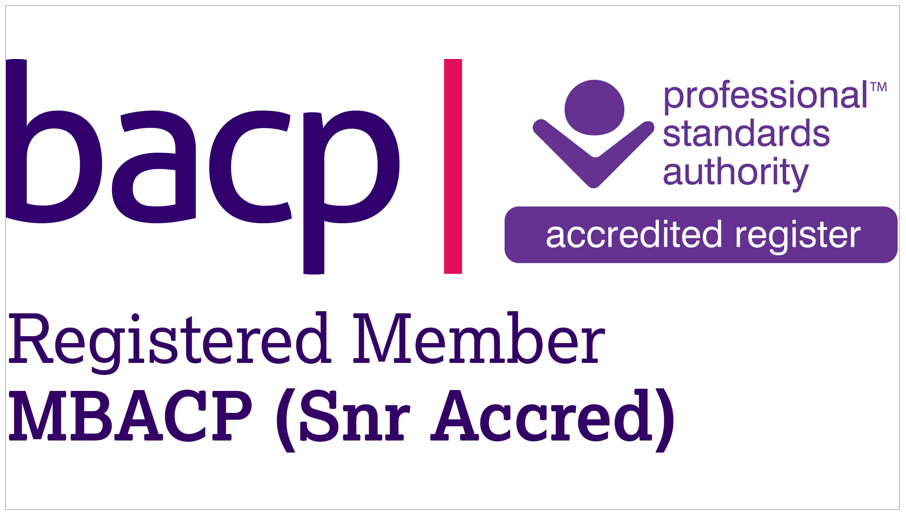40 Years' Experience
Psychotherapy near Beaconsfield
I offer individual, couple and family counselling to clients in Buckinghamshire. Get in touch
with me for more details.
COUNSELLING OR PSYCHOTHERAPY?
If you are perusing my website you will notice that I use the two words interchangeably. I am a Counsellor and a Psychotherapist who offers Counselling and Psychotherapy. The British Association for Counselling and Psychotherapy definition of counselling/ psychotherapy states that “Counselling and psychotherapy are umbrella terms that cover a range of talking therapies. They are delivered by trained practitioners who work with people over a short or long term to help them bring about effective change and/or enhance their well being”.
There is no agreed difference between counsellors and psychotherapists, although there is much debate about it. I feel that the blurring of the distinction between the two has gone so far as to make the debate over the difference more confusing than enlightening. As you read through my website, please be aware that I choose to use the words ‘counselling and psychotherapy’ and ‘counsellor and psychotherapist’ completely interchangeably.
The basic principles
The aim of counselling is to provide an opportunity for clients to work towards living in a more satisfying and resourceful way. In counselling the right of the client to make his or her own decisions is respected.
I will clarify with the client the basis on which counselling is to be undertaken, including fees and confidentiality. All subsequent changes will be negotiated.
I continually monitor my own skills, resources and practice.
I am professionally qualified as counsellor/psychotherapist and I am committed to maintaining my competence.
I have regular supervision and consultative support.
I will not abuse my position or trust in any way.
Aspects of my approach to counselling
While I follow the core principles and ethics of counselling outlined above, I have developed approaches to my work which I seek to tailor to the needs of each client according to their needs, life experiences and reasons for seeking my help. These different strands to my work are the result of the integration of my developing experience, philosophy and training and my understanding of innovations in the world of
counselling and psychotherapy.
In addition to my basic beliefs grounded in the Person-Centred Approach I outline here the main areas which I incorporate into my work and which I have found have proved most helpful to my clients.
EMDR-Eye Movement Desensitisation and Reprocessing
EMDR is a highly effective method of 'normalising' trauma. When a person has experienced a traumatic event, this trauma may become locked into the mind and the brain may 'replay' the trauma spontaneously in the form of flashbacks and the person may develop Post Traumatic Stress Disorder. These experiences can become fixed in the body-mind in the form of irrational emotions, blocked energy and physical symptoms.
Ordinary daily events seem to happen without leaving a mark on our lives. Traumatic events however can often get trapped, forming a perpetual blockage. Like a broken record, they can repeat themselves in our mind-body over and over again. Nightmares may be the mind's way of attempting to process this information, but the trauma memory always lasts beyond the dream.
Traumatic experiences, when locked in the mind, can exacerbate anxiety and prevent a person from moving forward and escaping from the prison of fear.
EMDR can help the traumatised to feel what is true for them. It can help a person to develop and attune to their own inner wisdom. EMDR clears away clutter so that a person can normalise their experience. It allows the 'locked' information to pass through the mind, processing and normalising it. The therapist follows and facilitates the client's process without interpretation or judgement. This enables the person to observe and report their experiences with less fear and aversion, listening to themselves.
In EMDR therapy people develop and strengthen their sense of truth & inner wisdom by reprocessing the old traumatic material in a structured and safe way.
I would be pleased to explain the principles and procedures of EMDR if you would like further clarification.
Inner Child therapy
I believe that most of us can benefit from discovering out Inner Child and responding to her/his cry. ‘Let me out!’ I believe that the wounds that our Inner Child received from our parents and from the cumulative experiences of childhood and adolescence is what contaminate our adult selves. This occurs through a powerful ‘toxic shame’ which can haunt us and express itself through anxiety, depression and/or addiction throughout our adult lives. I believe, however, that if we are able to connect with, express and understand this shame then we can liberate and reclaim the feelings, sensitivity and wonderment of the Free Child we all possess and find ourselves on a path to healing and health.
I encourage clients who want to follow Inner Child work in the therapy to look at how they recognise and experience their Inner Child and discover to what extent their childhood needs went unmet and how this impacted on their adult lives. I then encourage the client to re-parent their Inner Child in - and between – sessions by transforming their shaming voice into a nurturing one. This is often through Art, Chair Work, Voice Dialogues, Visualisation, Focusing and Letter-Writing.
Men and masculinity
I have developed a passion for exploring the world of men and men’s issues through my personal experience of being a man and a male counsellor in a predominantly female profession; particularly in my work as project manager for the Counselling Service at Feltham Young Offender Institution.
I encourage my male clients to “follow their bliss” by integrating what I have discovered about myself on my personal journey with what I have learnt from so many male clients over the years. I adopt an approach which decisively rejects the old masks of power and dominance which men have traditionally worn.
Late maturity
This is the age at which relationships can be impacted by changes in work and for many couples the prospect of both partners being at home all day every day when one has been out from 7 to 7 every weekday for 30 years and the other has had the freedom (or servitude!) of home all that time can create a minefield of relational conflict and tension. Other problems often arise where a client has forged her/his identity in the workplace with wealth, power and status being by-products of a ‘successful career’, only to find that there is a huge void filled with fears of being insubstantial, inconsequential and rudderless. If you have arrived at, or are approaching, the stage of late maturity you can probably name a range of existential issues and changes in psychological and physical safety and security which beset you; are you approaching them in the healthiest and most effective ways you can or do you just ‘water the weeds’ of your life and find yourself depressed, anxious and disempowered? If the former, I salute you! If the latter, please get in touch and enquire about the possibility of engaging in psychotherapy to help you embrace late maturity, integrate mind, body and soul and be ready to ‘die with life’!




